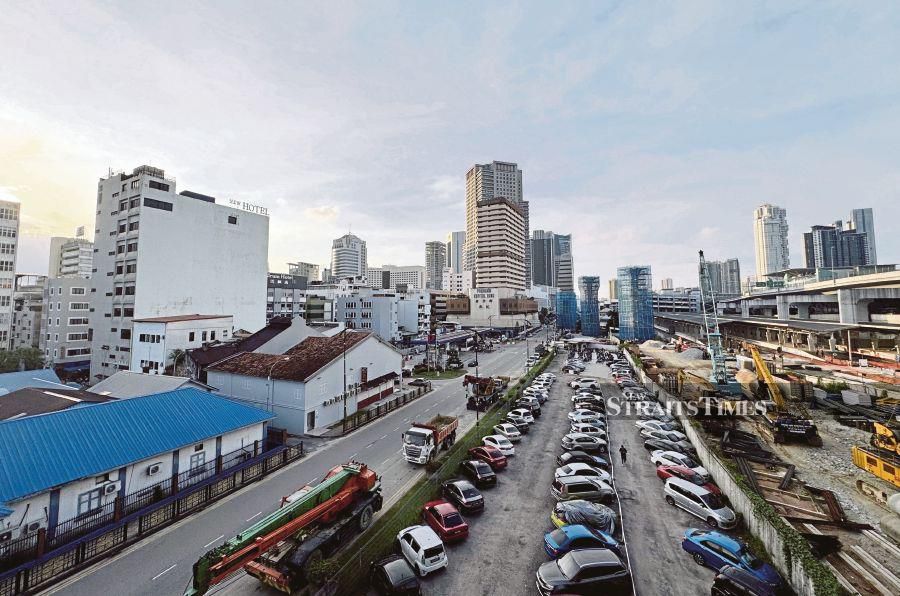JOHOR BARU: Singaporeans are capitalising on the weaker ringgit by making a beeline across the Causeway to stock up on medicines, buying them at much lower prices in Malaysia.
However, concerns have been raised about the lack of oversight in the sale of these medications, with some pharmacies in Johor allegedly closing one eye to the need for doctor-issued prescriptions.
The unrestricted purchase of controlled drugs and other medicines has also led to fears of stock shortages and a significant increase in prices.
Medicines controlled under the Poisons Act 1952 are classified into two types: Group B and Group C.
Group B medicines are strictly to be dispensed upon prescription by doctors, while Group C medications can be dispensed by pharmacists without any prescription after consultation with the patient.
Over-the-counter medicine is defined as medicines that are not controlled under the Poisons Act 1952, such as cough, sore throat , anti-diarrhoeal preparations and laxatives.
A Singaporean, who declined to be named, said she would travel to Johor Baru to buy her hypertension medication.
The 60-year-old said the drug was sold in Singapore at more than S$100 per box.
"However, I can buy it over the counter in a pharmacy in JB at a fraction of the price. I pay about RM70 (S$19) in Malaysia."
She claimed she had never been asked to provide a doctor's prescription.
"The counter staff would only ask me if I have used it before.
"I would reply 'yes', and put down my particulars in the registration book at the counter," she said, adding that she would usually buy two boxes at a time.
The New Straits Times conducted checks on several pharmacies in the state capital and found that anyone, including foreigners, could walk in and fill up their details in a notebook on the counter, and make their purchases.
There were no restrictions on the amount to be purchased and no questions were asked about doctors' prescriptions.
Details filled up in the notebook were not verified.
Johor Health Department director Dr Mohtar Pungut @ Ahmad said it was an offence for controlled drugs to be dispensed without a doctor's prescriptions.
He said unless medicines under Group B of the Poisons Act were sold over the counter at convenience stores, or on premises without a licensed pharmacist's authorisation, action could be taken.
Meanwhile, Malaysian Pharmacists Society president Professor Amrahi Buang said the onus was on pharmacists to conduct the checks before dispensing medicines under Group B.

He said Singaporeans needed to produce prescriptions by doctors in Malaysia as prescriptions from Singapore were invalid.
"The law and regulations are in place, and pharmacy licences are issued to the pharmacist, not the proprietor of the company.
"If the pharmacists failed to ensure the prescriptions' authenticity, then they are guilty of breaching laws and regulations under the Poisons Act."
Amhari added that doctors' prescriptions were a law-binding document required under the Poisons Act, before controlled drugs can be dispensed to consumers.
He urged pharmacies to adhere to the regulations and ensure sufficient supplies of medicines for their customers.
Health Minister Datuk Seri Dr Dzulkefly Ahmad said he would investigate the issue.
"I will check with my director-general officers before commenting on this. I promise to follow through as it is a serious matter."
Meanwhile, Dr M. Mageswari, a doctor at a private clinic in Johor Baru, said controlled drugs purchased without prescriptions could easily be misused and abused, and could pose health risks.
"Without regulation, there is a heightened risk of adverse health consequences."
She said controlled drugs bought in pharmaceutical stores should be restricted to ensure ample stock and the prices were kept reasonable for consumers.
Citing an example, Dr Mages-wari said during the Covid-19 pandemic, due to the increased demand, the prices of certain medicines shot up.
She said even though patients had the option to get subsidised medicines at government hospitals and clinics, they should also have the option of getting reasonably-priced medicines over the counter at pharmaceutical stores.
Dr Mageswari said while medicines dispensed to her patients were also slightly higher priced at the clinic, she would at times write prescriptions, especially to those from the low-income group, for them to buy at pharmacies.
However, she said those with respiratory issues would often come back to get the medicines from the clinic, since the pharmaceuticals stores had run out of stock.
She attributed the low stock numbers to the buying power of Singaporeans.
In the past, Singaporeans braved the Causeway congestion for cheaper fuel, and recreational or shopping purposes.
Of late, they are also buying luxury properties, setting up businesses and taking advantage of the Johor-Baru Special Economy Zone and the Special Financial Zone.
Tourism Johor recorded 16 million tourists in Johor last year and most of them were Singaporeans. The number is expected to increase by four million this year. - NST


No comments:
Post a Comment
Note: Only a member of this blog may post a comment.